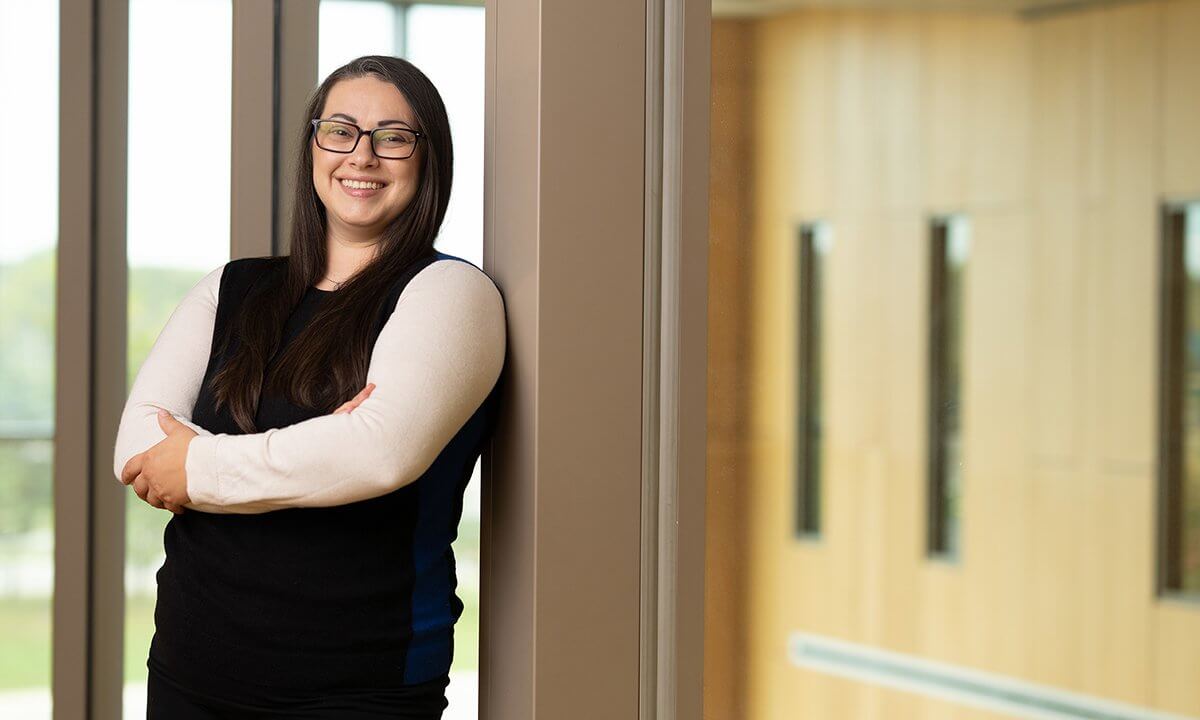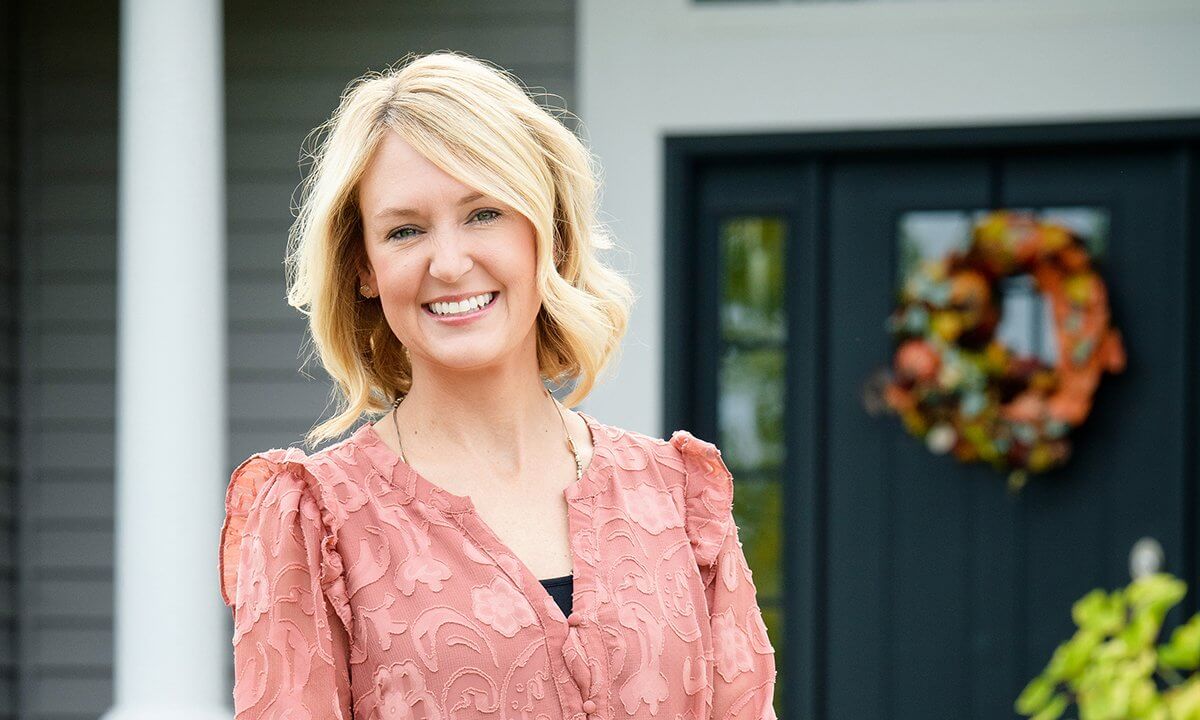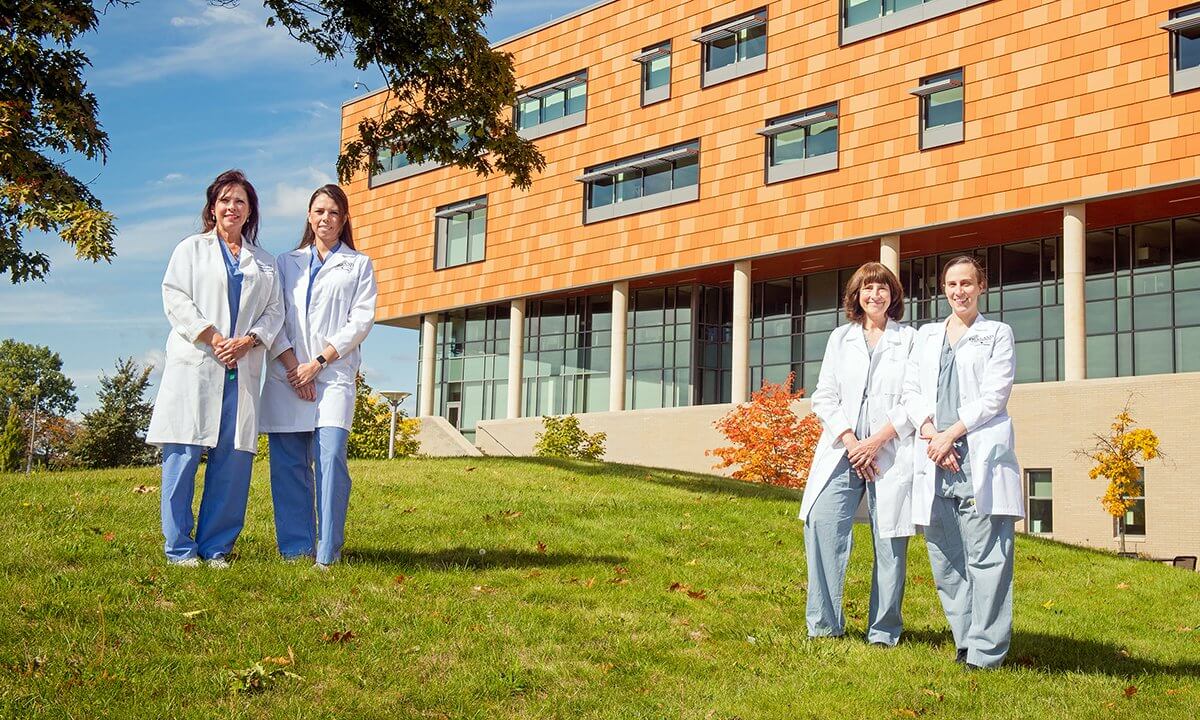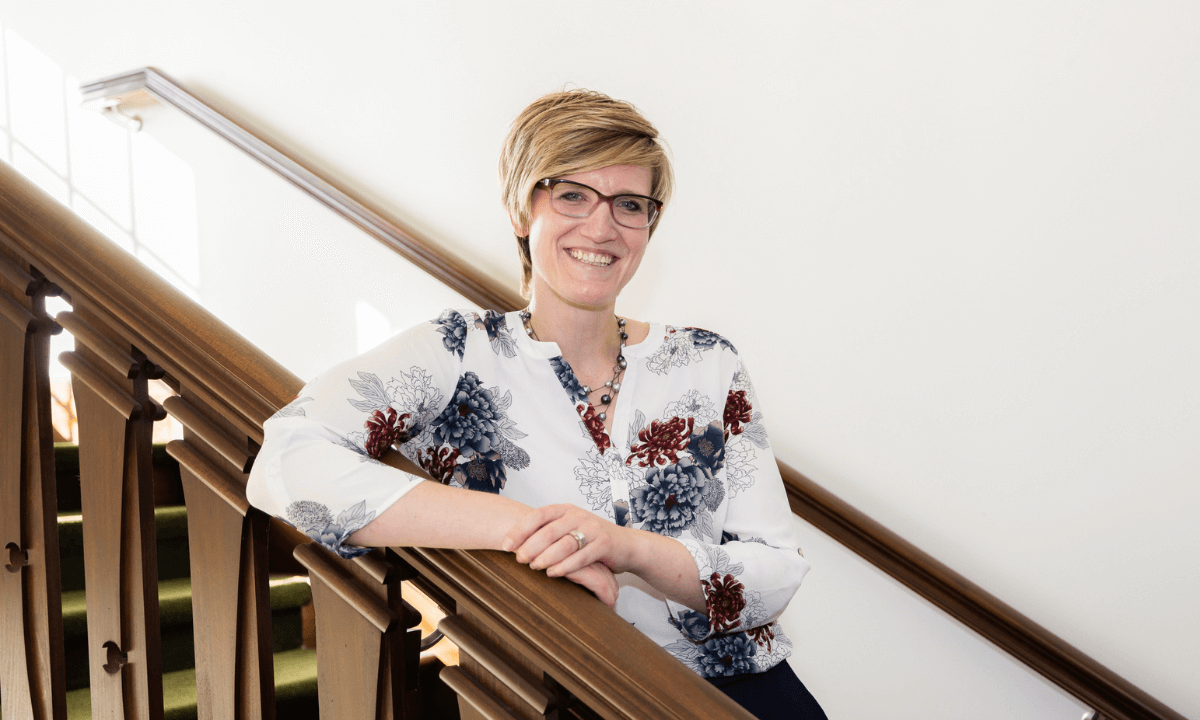This Star Still Shines
Award-winning Alumna Embraces COVID-Impacted Year Filled with Twists
While 2020 will go down in history as that “unprecedented” year of COVID, Christina Boyland (BSN ‘09, MSN ‘18) will also remember it as an unprecedented year in her nursing career.
Boyland, a forensic nurse and special lecturer with the SON, was still able to accomplish several noteworthy achievements. She:
- Published an article for the first time in the May 2020 edition of the Journal of Emergency Nursing
- Wrote the manuscript at the invitation of co-author Virginia Lynch, MSN, RUN, FCNS, FAAFS, FAAN, who is considered the founder of forensic nursing
- Was named the 2020 winner of the OU SON’s Nightingale Award in the Distinguished Alumni category
- Transitioned from Beaumont Hospital to a full-time role as a forensic nurse at Turning Point, a Macomb County based program that provides medical forensic exams, support, and resources to empower survivors of domestic violence and sexual assault, just as COVID-19 hit Michigan contributing to a rise in domestic violence.
- Co-authored a chapter for a women’s gynecological textbook with Kelly Berishaj, DNP, RN, ACNS-BC, SANE-A, special instructor and Forensic Nursing Program Director for the SON
- Sat for an exam that to become certified as a sexual assault nurse examiner for adult and adolescent populations
But she looks back at receiving her master’s degree (2018) as her crowning achievement.
“That moment is huge for me because I was kind of that problem child my first couple years of high school,” Boyland says. “Having my parents watch me walk across the stage as a master’s prepared nurse is a significant moment for me and my family.”
Boyland, who lives in Clawson, MI, is already considering adding three more initials to her name, either DNP or PhD. But for now she is also a teacher, helping the nurses of tomorrow understand the nuances of forensic nursing. She describes forensic nursing as caring for patients that have been affected by violence, trauma, or maltreatment and where healthcare and the legal system intersect.
Getting Published
Establishing herself as an expert in the field, Boyland co-authored an article with OU’s Berishaj and Lynch, an honorary esteemed fellow at OU SON, and Kristin Reinink, MSN, RN, SANE-A, SANE-P, TCRN, a nursing supervisor at a Grand Rapids hospital who was in Boyland’s cohort. They examined the need to have a forensic nurse as a part of regular staffing in the hospital setting to best meet the needs of patients who have experienced trauma. The manuscript on the forensic nurse hospitalist was accepted for publication in the May 2020 edition of the Journal of Emergency Nursing.
Boyland was making headway getting the attention of Beaumont Hospital where she worked to adopt the idea of a forensic nurse hospitalist. For her efforts, she was awarded the OU SON’s Nightingale Award in the Distinguished Alumni category. She was one of 11 Nightingale Award winners this year. Each winner receives a check for $1,000, a solid bronze statue of Florence Nightingale, and a Nightingale ceremonial pin. Nominees were nominated by their peers, supervisors, and patients in recognition of their superior nursing expertise.
“Christina Boyland is the epitome of the professional nurse — she is compassionate, empathetic, and a risk taker,” says Berishaj, who recruited her to help write a chapter for a women’s gynecological textbook, since Boyland worked on Beaumont’s obstetrics’ floor. “She is willing to ask the hard questions, seek out the answers, and go the extra mile to do whatever is necessary to provide the best care to her patients and offer evidence-based support to her colleagues. She is willing to put in the hard work whether it be as a nurse, student, or educator to reach her goals which generally revolve around improving patient care.”
The COVID Influencer
When COVID-19 hit Michigan, it halted the momentum Boyland built on the hospitalist front. She soon took a forensic nurse position at Turning Point and found that COVID also impacted her work there.
Turning Point’s crisis line had a sharp rise in calls and the time on the phone increased as situations were more critical, she says, though visits for sexual assault exams decreased. The dynamics of intimate partner violence, sexual assault, and strangulation are definitely different. The abuser may be home more frequently because of shut-downs so a patient’s ability to access services is impacted,” she says.
“I've been hearing that COVID is being used as a new tactic of power control, as a means to isolate victims and survivors,” she adds. “Research indicates that high stress situations, loss of employment, and loss of wages are contributing factors to intimate partner violence. Couples could not go to work to get away from each other.”
Boyland had not heard of forensic nursing until she arrived at Oakland, which had the first forensic nursing program in the state of Michigan and is one of the top forensic nursing programs in the nation. She was intrigued immediately.
Now she is teaching in the program and as a recent graduate, feels she is able to connect easily with the students; and she has found a new love.
“I love teaching,” she says. “It helps me stay on top of the field. We are constantly learning more. Evidence-based practice continues to generate so it keeps me cutting edge and I get the reward of nurturing new nurses who, like me, didn’t even know forensic nursing was a specialty.”
Her path to success has been unprecedented.
For more information on the forensic nursing program, visit the School of Nursing.

 December 01, 2020
December 01, 2020
 By Rene Wisely
By Rene Wisely



